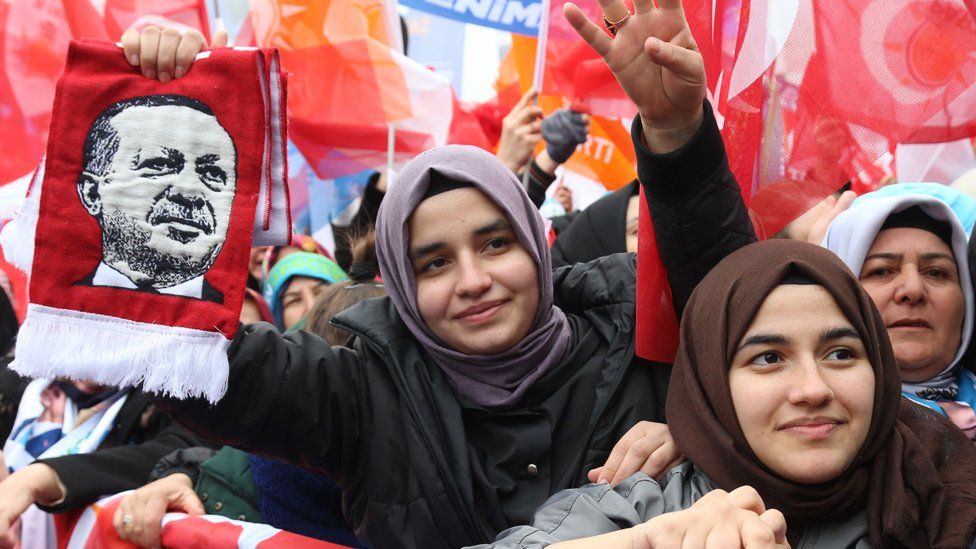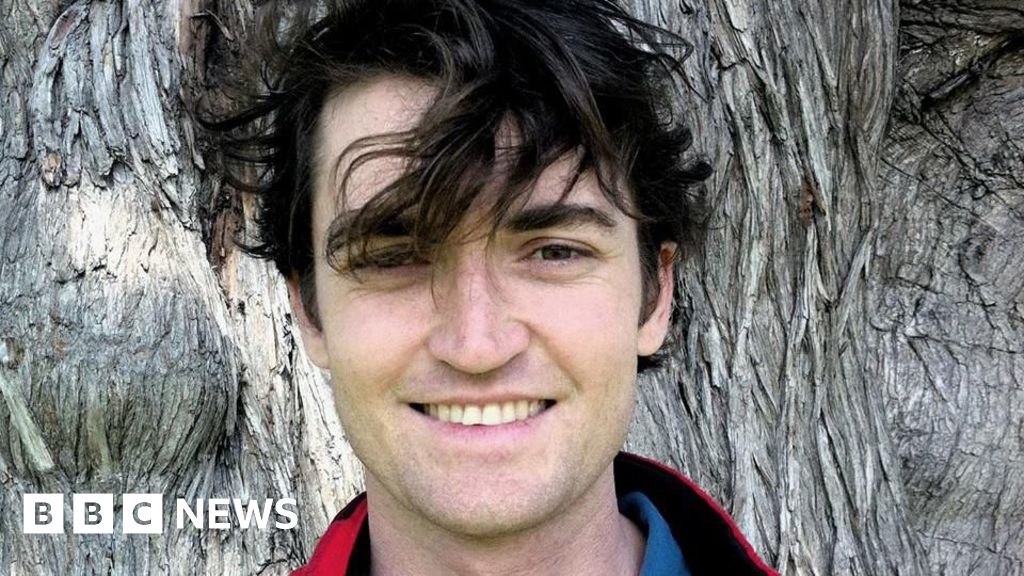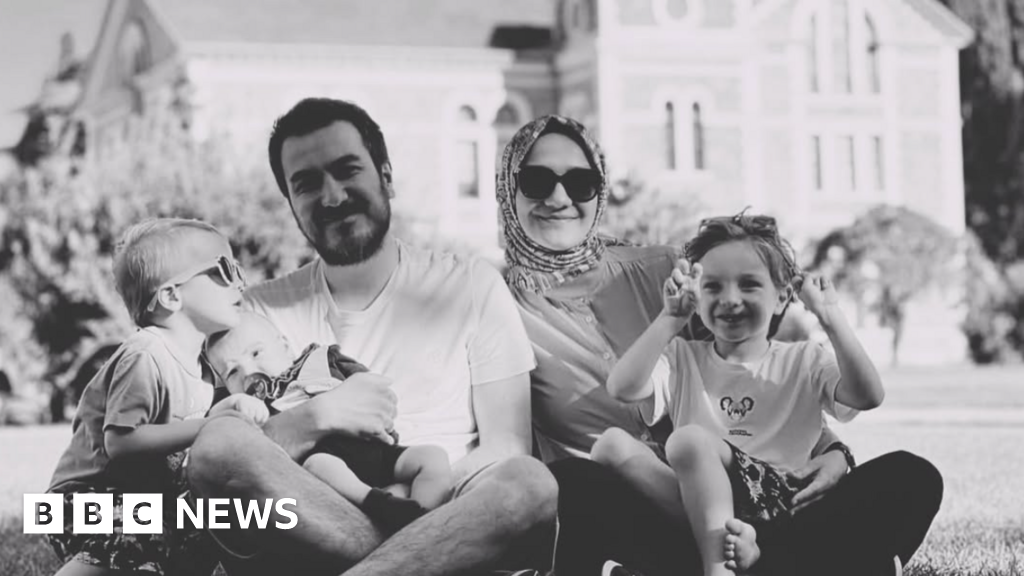ARTICLE AD BOX
 Image source, NECATI SAVAS/EPA-EFE
Image source, NECATI SAVAS/EPA-EFE
Until 2019, President Erdogan's AK Party had been in charge of Istanbul and Ankara for 25 years
By Cagil Kasapoglu
BBC World Service
Millions of Turks vote in elections on Sunday to decide who runs their biggest cities - and whether President Recep Tayyip Erdogan can wrest back control from the opposition.
Turkey's economic and social powerhouse, Istanbul, was won by a united opposition five years ago under popular mayor Ekrem Imamoglu, shattering the president's long run of electoral success.
Now Mr Erdogan, who was born in this megacity of 16 million people, wants it back and the vote is on a knife-edge.
Whatever happens in Istanbul is being seen as a crucial test of whether the opposition can pose a serious threat to Mr Erdogan and his AK Party in the next presidential elections in four years' time.
"Istanbul is his home. Losing Istanbul to the opposition in the 2019 local elections was devastating for him," says Ihsan Aktas of the department of communication at Istanbul Medipol University and chair of the Genar Political Research Centre.
Istanbul was where he grew up, selling sesame bread snacks called Simits before going into politics in the 1970s.
Image source, Getty Images
Image caption,Recep Tayyip Erdogan started his political career in Istanbul as a member of an Islamist Party
He headed an Islamist party's youth branch in the district of Beyogluthen, and rose through the ranks to become mayor, prime minister and ultimately president of Turkey.
Recep Tayyip Erdogan secured a third term in presidential elections last year, but in this latest vote the main opposition party, the secular CHP, is hoping to hold on to big cities that it won back in dramatic fashion five years ago. Not just Istanbul, but the capital Ankara and the tourist city of Antalya.
Until 2019, the ruling AK Party and its Islamist predecessors had run the two biggest cities for 25 years.
In Istanbul the opposition even defeated his candidate twice, as the AKP alleged there had been irregularities and officials ordered a re-run.
Image source, EPA
Image caption,Ekrem Imamoglu is seen as the biggest challenger for Mr Erdogan
"Although the opposition lost against Erdogan in last year's presidential election, there is still a strong link between winning Istanbul and winning Turkey," says Seda Demiralp, professor of political science at the city's Isik University.
"If Imamoglu manages to keep Istanbul, the opposition will still have high hopes for the upcoming 2028 presidential elections."
Ihsan Aktas agrees that whoever wins will have enormous influence beyond Istanbul: "When you have the backing of Istanbul, you directly become an actor in the national politics. And globally too."
The city hosts a fifth of Turkey's population of nearly 85 million people, and it has a diverse electorate from different political, ethnic, religious and economic backgrounds.
Control Istanbul and you control a significant portion of Turkey's economy including trade, tourism and finance.
The candidate chosen to run for Mr Erdogan's party in Istanbul is Murat Kurum, a 47-year-old former minister for the environment and urbanisation. But it may as well be a race between Ekrem Imamoglu and Mr Erdogan.
A former businessman, 52-year-old Mr Imamoglu rose to prominence as mayor of the city's little-known middle-class district of Beylikduzu and he is viewed as President Erdogan's biggest challenger in decades.
Image source, ERDEM SAHIN/EPA-EFE/REX/Shutterstock
Image caption,Supporters of Istanbul Mayor Ekrem Imamoglu attend an election campaign rally in March
"In 2019 we closed a chapter, and on 31 March, [the AKP] will be history," he told supporters at a rally in Beylikduzu.
Another victory would bolster his political clout and pave the way for him to run for the presidency in four years' time, political commentators say.
The mayor of Ankara, Mansur Yavas, has also been tipped to run in 2028 and his route to victory on Sunday is seen as more secure.
For now Ekrem Imamoglu is keeping his sights on his current job.
"I have big dreams for Istanbul, I don't dream of anything else, but just fulfilling them for now," he told Turkish daily Cumhuriyet.
During his five years in office, Turkey has been in the grip of an economic crisis, although the mayor highlights an extension to the city's rail system, more green spaces and a major house-building programme.
But there is another major concern that grips the people of Istanbul.
Last year's double earthquake in southern Turkey left more than 53,000 people dead and seismologists warn that a devastating quake may hit Istanbul at any moment.
Plans to demolish old, dilapidated buildings and build earthquake-resistant replacements are top of the agenda for the AKP.
"Murat Kurum is a name identified with urban development, and has a symbolic significance," says Ms Demiralp, but still "it may not be enough to secure a victory".
Image source, EPA-EFE/REX/Shutterstock
Image caption,President Erdogan (R) joins his Istanbul mayoral candidate Murat Kurum (L) at the party's rallies
President Erdogan and top ministers have made winning back Istanbul a personal goal, promising a new era from 31 March.
"Istanbul will be returned to its real owner," he promised hundreds of thousands of supporters at a rally in the city.
Now aged 70, he has previously said these will be his last elections. He is in his third term as president and cannot rule beyond 2028 under the constitution.
But he hasn't picked any successors yet and Ihsan Akstas says pinpointing who might replace him as head of the AKP is extremely difficult.
"When we ask pollsters who they would like to see replacing Erdogan, they cannot think of anyone. This is a challenge for the party."
Image source, Getty Images
Image caption,Istanbul has a population of 16 million and is Turkey's biggest city by far
That is why Mr Erdogan's critics believe winning back Istanbul might be used to consolidate his power at both the national and local level, with potential changes to the constitution that would grant him yet another term as president.
Unlike recent elections, he also has an advantage in that the opposition is no longer united and polls suggest the race in Istanbul could be neck and neck.
Ekrem Imamoglu won in 2019 backed by a six-party coalition of nationalists, secularists, liberals, conservatives, Islamists and, most crucially, the Kurds. Istanbul has a very large Kurdish population.
But that opposition collapsed after last year's presidential defeat and the other opposition parties, including the pro-Kurdish DEM Party, have their own candidates in this race.
That could damage Mr Imamoglu's chances of winning. But another twist could damage Murat Kurum's hopes too. A new party called the Islamist New Welfare Party could take votes from him, as conservative and religious voters look to alternatives to the AKP.

 9 months ago
82
9 months ago
82








 English (US) ·
English (US) ·